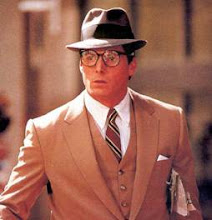I wanted to try incorporating myself into the piece as well. I didn't necessarily want to make myself a character, but I wanted to be present. That was fairly difficult. I didn't write it in the past tense, I wanted to write it as if the reader was experiencing things with me. I'm not sure that works out. For example, with dialogue, it was difficult not putting the accompanying text in past tense.
"I had a good day today," Bob said. -vs.- "I had a good day today," Bob says.
Just felt weird is all. Another thing I found difficult was the history of the town. I wanted to make the piece just about the abandoned buildings themselves - what led to their decline, if they still have a purpose in town, what will become of them, etc. I didn't want to make the piece about the city itself - I wasn't really interested in the city, just in the phenomenon of the empty mills and warehouses. At times, it felt like I was cheating my reader out of valuable information, like how Mr. Kindleberger started the factory or his life/work philosophies. Then again, those didn't have immediate relevance with the story. I didn't really care about Mr. Kindleberger, I just cared about how awe-inspiring/creepy/eerie those structures were. I'm sure someone in workshop will want me to have more background information on the subject, but I didn't feel that knowing every historical fact would give the reader a better feeling of the place. Again, that was difficult. I'm not sure how my piece will be received as a result.

No comments:
Post a Comment